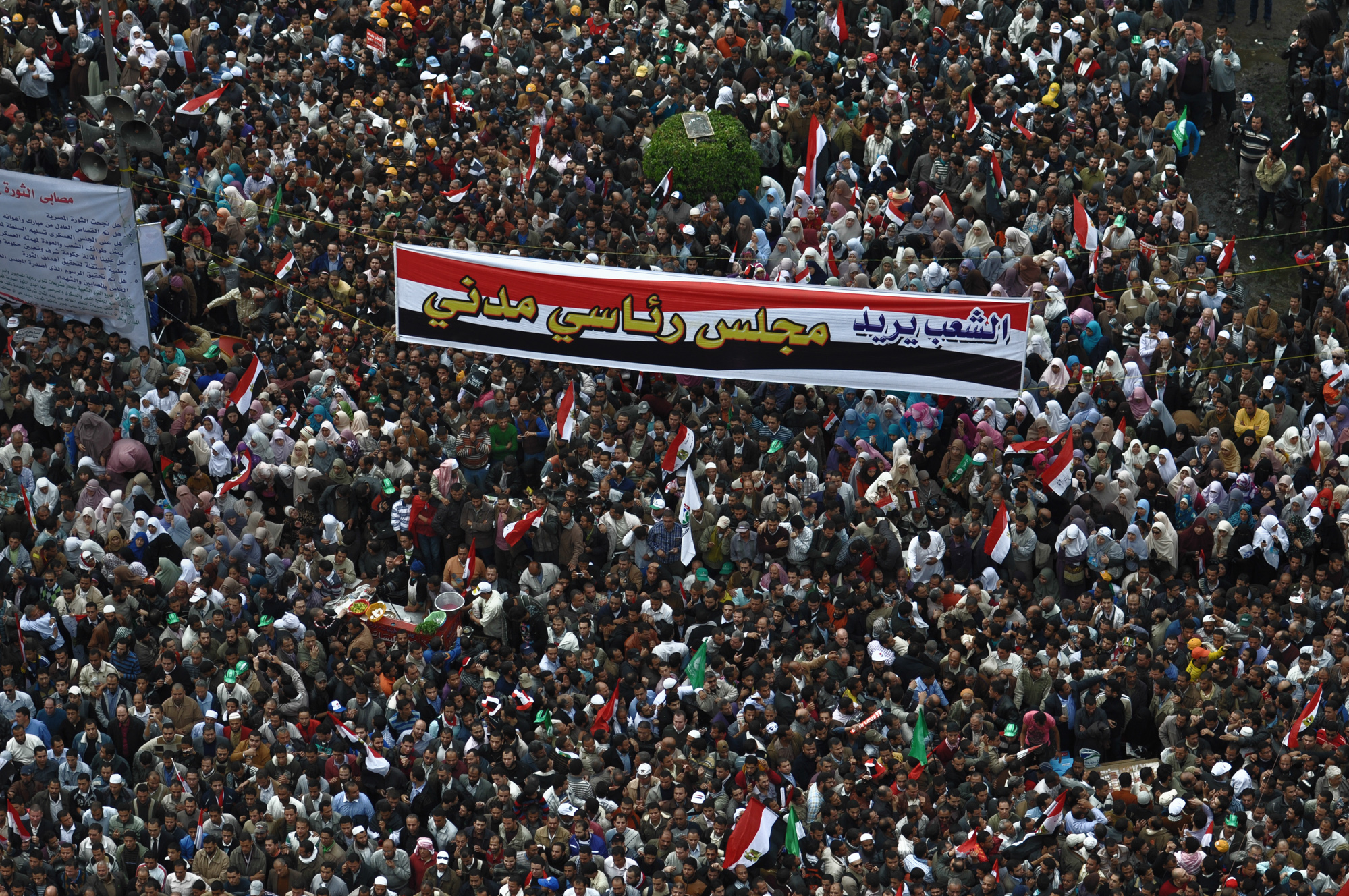Thousands of protesters gathered in Cairo’s Tahrir Square and Alexandria under the slogan “Reclaiming the Revolution” today, voicing their discontent with the handling of the nation’s transition by the Supreme Council of the Armed Forces (SCAF). The SCAF, which took control of the country after the fall of the Mubarak regime, had initially “pledged to end the much-hated emergency laws, hold elections and deliver the country back to civilian rule within six-months.” Protestors were angered not only because the SCAF’s tenure has exceeded the six-month mark but also because the SCAF “broadened [the] application” of the emergency laws instead of scrapping them.
The protest, initially called for by the Coalition of Revolutionary Forces—a collection of 40 radical youth groups—specified 14 political and economic demands. Key amongst these demands were the need for “[the reversal of the] recent decision to activate emergency laws, [an immediate] halt [to] the use of military courts to try civilians, and [the rescinding of] a law passed last March that criminalized strikes.”
In upper Egypt, near the Aswan city of Edfu, a group of Muslims gathered afterFriday prayers today outside St. George’s Church in the village of Marinab. The group then attacked and set fire to the building before destroying other Coptic-owned property. According to several news reports, the preacher at the local mosque had called for the church’s destruction during the service.
There were prior disputes about the legality of the church; Muslims (including the provincial governor) claimed that it was a new building that had been built without proper permission, while the Christians of the village insisted that the church was decades old and that permission for a recent restoration had been legally obtained. Several Christian-run websites had warned in previous weeks that Salafis had threatened the town’s Copts. The building and maintenance of churches in Egypt has long been controlled by a scheme requiring state permission for such activities.
